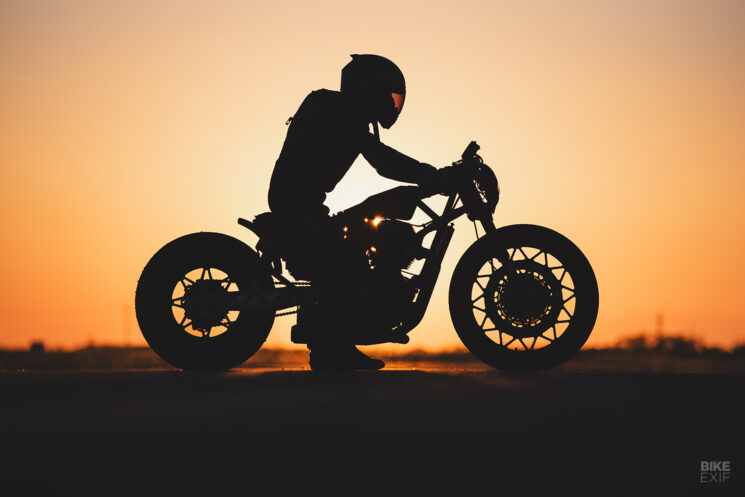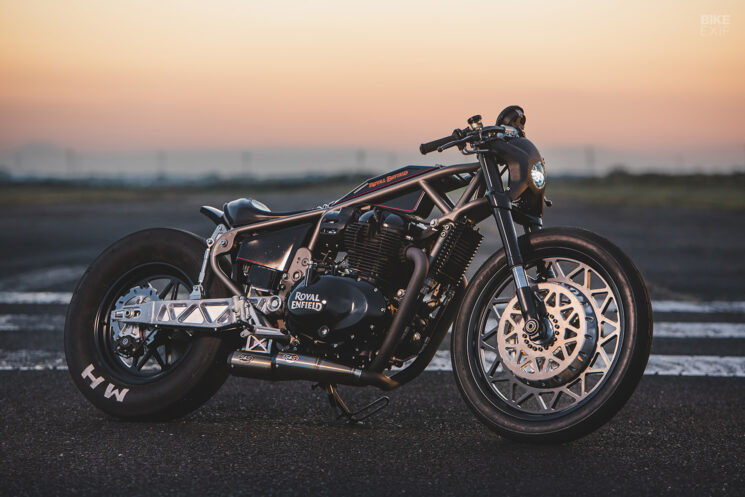
The 32nd annual Yokohama Hot Rod Custom Show is kicking off in Japan as we speak. For visitors, it’s a cornucopia of visual delights, featuring the best handcrafted machines that the scene has to offer. For custom bike builders, it’s the ultimate proving ground.
But the HRCS (or ‘the Mooneyes show,’ as it’s commonly known) isn’t just an opportunity for solo builders and workshops to flex. Major OEMs have turned to it, and other shows, in recent years—punting their wares to a captive audience to prove just how customizable their bikes are.
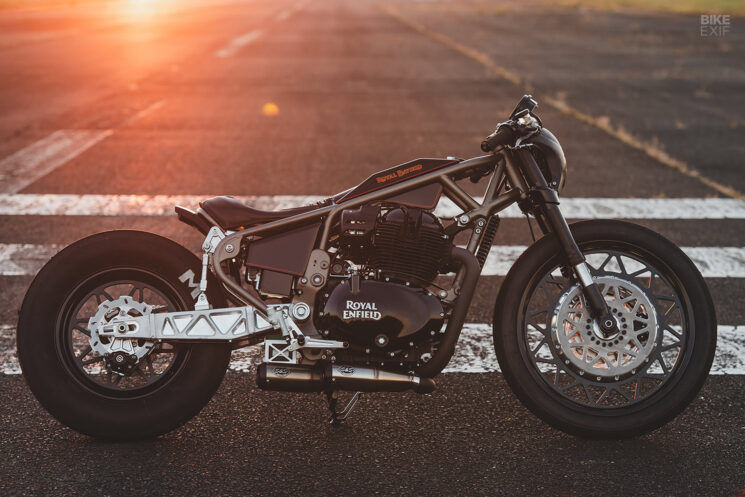
The standard at Mooneyes is sky-high—so if you’re going to show up, you’d better come in hot. Royal Enfield has the right idea. This year, they turned to regular Mooneyes award winner, Sureshot, to deliver a custom Royal Enfield Shotgun 650 like no other.
Based in Chiba, just east of downtown Tokyo, Sureshot is run by Takuya Aikawa. Aikawa-san has multiple Mooneyes trophies in his cabinet—including a ‘Best Details’ nod and more than one ‘Best in Show’ award. So Royal Enfield knew that the Shotgun 650 was in good hands.
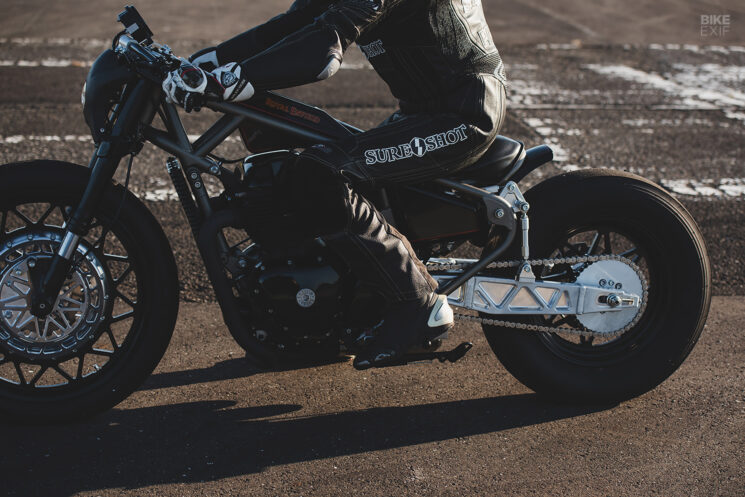
If you’re not yet familiar with the Shotgun 650, it’s a slightly more aggressively styled version of the marque’s Super Meteor 650 cruiser. Both utilize the same brilliant 648 cc parallel-twin motor as the Royal Enfield Interceptor—but neither is likely to be described as ‘rowdy.’ Sureshot’s mission was to change that.
Takuya calls this a ‘compact performance chopper,’ but it’s honestly hard to pigeonhole. And that’s really a testament to how deep he went on this build.
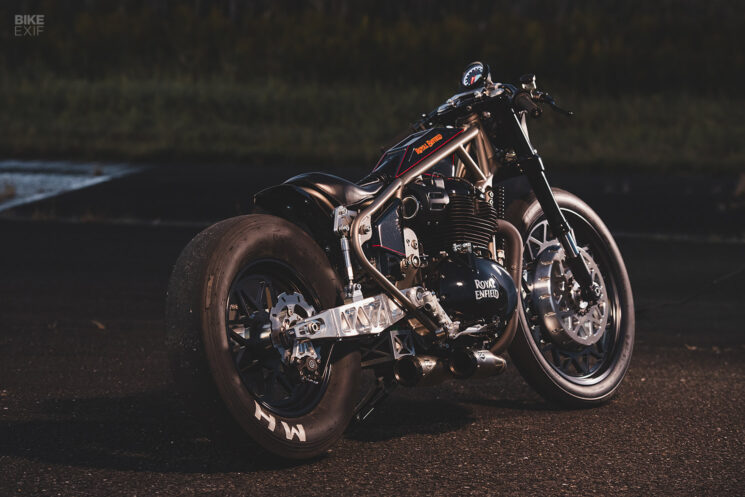
For starters, very little of the Shotgun 650 frame remains. Takuya cut out the front and back engine mounts, and then fabricated an all-new tubular chassis around them. The looped rear triangles deliberately mimic the shape of the stock frame—but they’re new too.
You’ll find the original Shotgun 650 forks and yokes up front, although the forks have been lowered. It’s a different story at the back, where Takuya fabricated a gnarly aluminum swingarm, plus a set of linkages that connect to a custom-built shock from RacingBros. The shock itself travels ‘through’ the seat, connecting to an upper link aft of the tank.
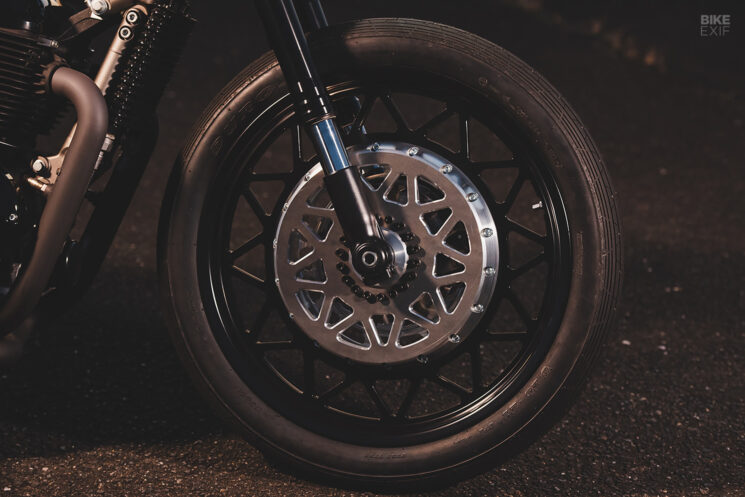
The Royal Enfield’s striking aluminum wheels were built from scratch. The 21” front wheel sports an oversized enclosure around its hub, hiding an inboard Brembo brake caliper. It wears a DURO HF-301B tire, with a M&H Racemaster drag racing slick wrapped around the 16” rear hoop.
With the rolling chassis sorted, Takuya adorned the Shotgun 650 with handmade aluminum bodywork. An impossibly tiny tank sits nestled within the trellised front section of the frame, holding just enough fuel for spurts down the drag strip. A bulbous headlight nacelle and a stumpy rear fender bookend the bike.
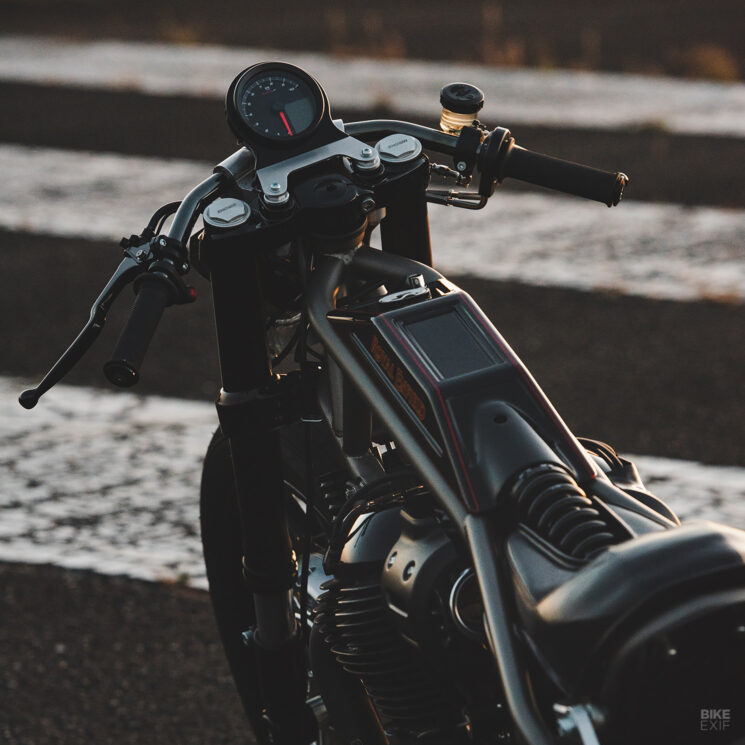
Up top, custom-made clip-on bars mount to aluminum clamps at the front of the top yoke, fitted with a Magura brake control and a Driven Racing clutch lever. A Koso speedometer sits front and center, while custom foot controls do duty lower down. The battery is a Lithium-ion unit from Skyrich and is housed in an aluminum cage below the swingarm pivot.
This Enfield is more than just a show bike though. Takuya rebuilt the engine with an 865 cc kit from S&S Cycle, which included forged connecting rods and a high-performance camshaft. Velocity stacks feed the intake, while gasses are expelled via a one-off exhaust system with S&S cans.
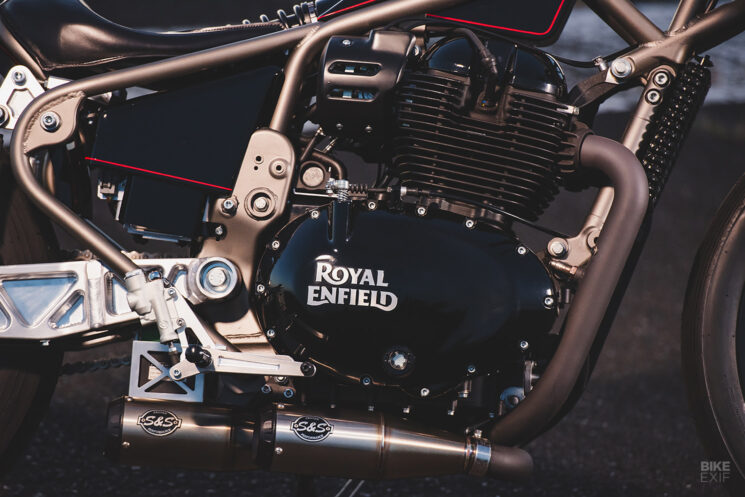
Sureshot’s facilities include a dyno, so Takuya installed a Dynojet Power Commander and fine-tuned the Shotgun 650 to run as good as it looks. Before the bike was painted and packaged for Mooneyes, he took it to the fifth round of the JD-Star Drag Racing Championship, clocking a time of 12.804 seconds.
Finished off in a candy black paint job by Rod’s Design, with pin-striping by Rio Studio and upholstery by Manabu Yamaguchi Artcraft, Sureshot’s custom Royal Enfield Shotgun 650 was finally show-ready. It’s too soon to say what accolades it’ll collect at Mooneyes—but it’s safe to assume that Aikawa-san won’t be coming home empty-handed.
Sureshot | Facebook | Instagram | Images by Kouki Kato | With thanks to Tadashi Kono
